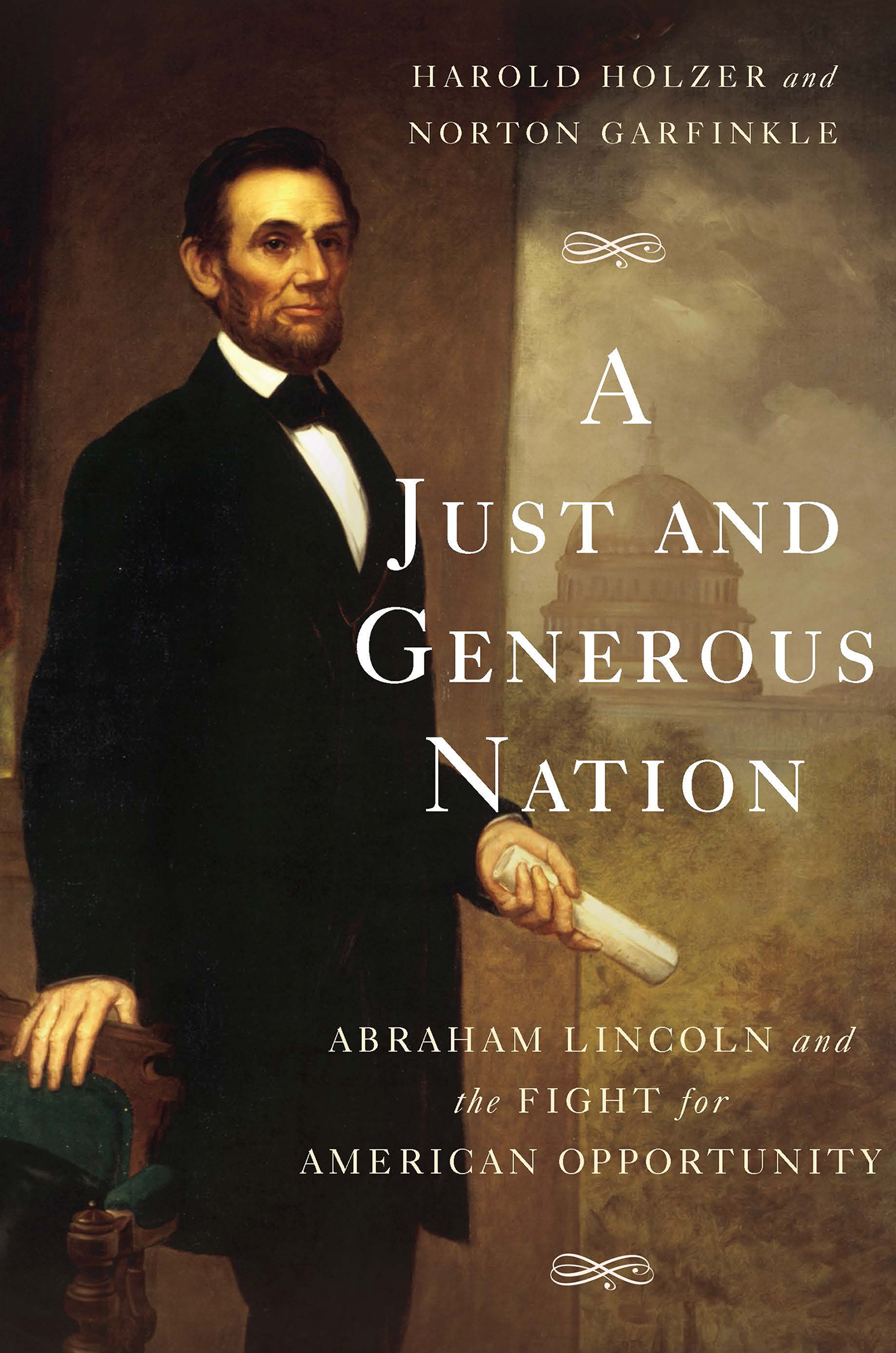
A Just and Generous Nation
Abraham Lincoln and the Fight for American Opportunity
کتاب های مرتبط
- اطلاعات
- نقد و بررسی
- دیدگاه کاربران
نقد و بررسی

Starred review from August 31, 2015
Lincoln scholar Holzer (Lincoln and the Power of the Press) and economist Garfinkle justify adding another Lincoln biography to the overflowing genre by conceiving, and supporting, a radical explanation for the great question about Lincoln’s life: Why exactly was the Civil War fought? Eschewing the traditional justifications of ending slavery or preserving the Union, the authors maintain that the overriding factor behind Lincoln’s response to the secession of the Southern states was his commitment to pursuing “economic opportunity for the widest possible circle of hardworking Americans.” That surprising thesis is based on a close reading of Lincoln’s own statements, going back to his early political life. His support for infrastructure projects while he was an Illinois state legislator resulted from his view of government’s responsibility to provide, in the authors’ words, “opportunities for working people to improve their economic status.” That thinking led him to argue that every American, regardless of their race, deserved to profit from their work. The authors spend the last third of the book tracing the fate of Lincoln’s economic agenda under his successors, giving their research a more practical angle than simply analyzing the historical record. The thesis is sure to be controversial, but Holzer and Garfinkle make their point well.

September 1, 2015
The acclaimed Lincoln scholar and an economist make the argument that Abraham Lincoln worked tirelessly to maintain economic opportunity for all people-a "right to rise" concept that has been sacred to politicians from then to the present. Lincoln wasn't exactly an abolitionist, write Holzer (Lincoln and the Power of the Press, 2014, etc.) and Garfinkle (Future of American Democracy Foundation), but he envisioned that all Americans could embrace the "American dream," from rags to riches as he had-even African-Americans. The authors concentrate their study on evidence of speeches and acts of Lincoln's presidency that demonstrated his pursuit of "economic opportunity for the widest possible circle of hardworking Americans." Lincoln hoped to extend Northern middle-class society into the new territories, and he abhorred the Southern aristocratic mindset that was opposed to social mobility through tariffs and internal improvements-e.g., public investment in infrastructure. New Western territories were, for Lincoln, meant for poor whites to "go and better their condition" and not for the spread of an institution, though protected by the Constitution, that restricted social mobility and depressed wages. The authors carefully sift Lincoln's speeches, beginning in 1854 with his shrewd political calculation that restricting slavery in the Western territories would mean that at some point in the near future, the "slow but sure arrival of an ever-growing western anti-slavery bloc" would spell the end of slavery in Congress. Time was on Lincoln's side, and he recognized that the nation "will become all one thing or all the other." Moreover, he used his own autobiography to sell the "self-made man" story, as the poor farmer's son who had scant education but huge motivation to better himself. In the second half of this compelling study, Holzer and Garfinkle trace how subsequent presidents managed this vastly changing postwar economic system and the shift from independent artisans to mills and factories. A well-honed work of driving focus, particularly timely in this new era of economic inequality.
COPYRIGHT(2015) Kirkus Reviews, ALL RIGHTS RESERVED.

Starred review from September 1, 2015
Acclaimed Abraham Lincoln historian Holzer (Lincoln and the Power of the Press) and noted economist Garfinkle argue that the principal driving force of Lincoln's life (1809-65), politics, and policies was the need to create the conditions that would allow and encourage "the right to rise," which for the Whig-turned-Republican Lincoln meant using government to build infrastructure, promote education, and encourage innovation. Explained is the president's opposition to secession, fight to save the Union, and move toward emancipation along with his support for government policies to open the West and stabilize currency. The authors apply the Lincoln standard to successive presidents and find that those who subscribed to his lessons, especially both Theodore and Franklin D. Roosevelt, fueled prosperity, while conservative leaders who promoted supply-side and free-market economics undermined Lincoln's legacy and weakened peoples' faith in America. VERDICT This review of Lincoln's thoughts and actions and examination of subsequent administrations' willingness to promote and secure the American Dream will generate much-needed debate on the history, efficacy, and morality of government's role and responsibility in shaping an economy of fairness and growth. The future of America depends on that question.--Randall M. Miller, St. Joseph's Univ., Philadelphia
Copyright 2015 Library Journal, LLC Used with permission.

























دیدگاه کاربران